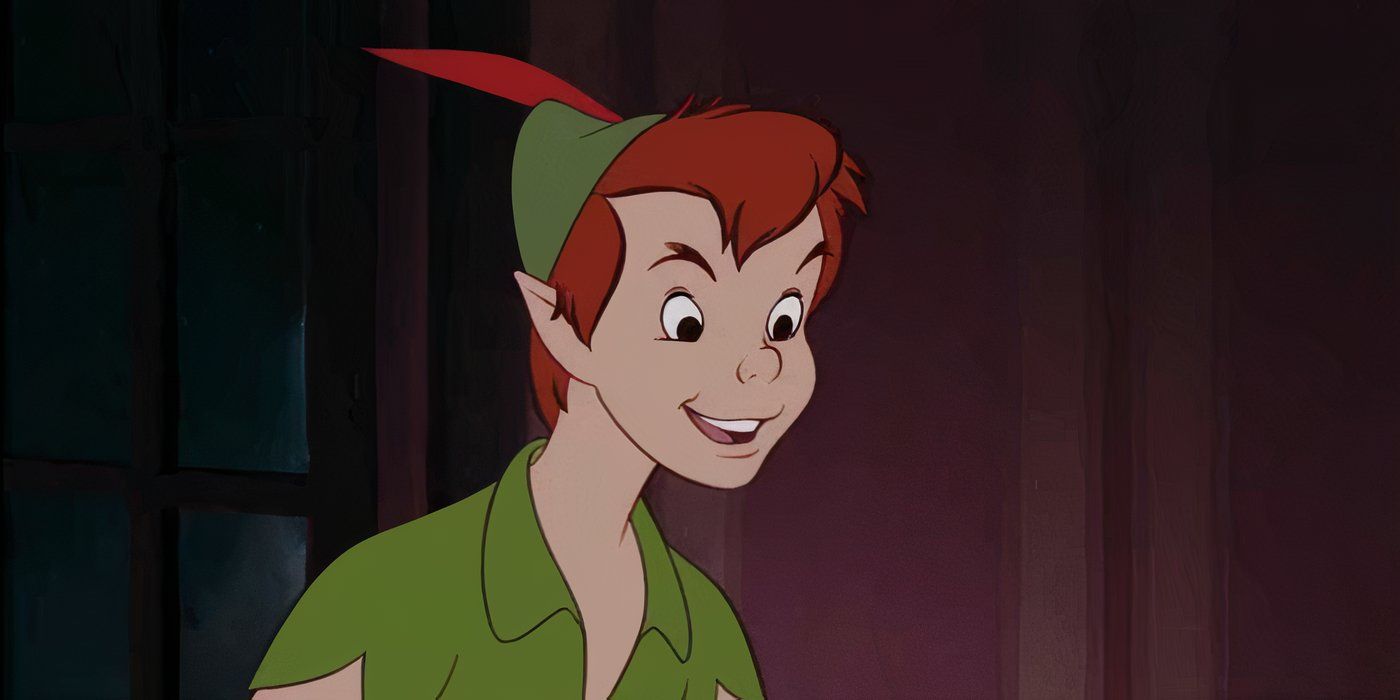
For many years, Disney’s enchanting animated film based on J.M. Barrie’s novel, “Peter Pan,” has captivated viewers. The story follows Peter Pan (Bobby Discroll), the ageless boy, and Wendy Darling (Kathryn Beaumont) as she and her siblings embark on an exciting journey to Neverland with him. Although they aim to stay young forever, their plans are disrupted by Captain Hook’s (Hans Conried) determined efforts to capture them.
Although the initial presentation of the movie, Peter Pan, was magical and fantastical, it has faced criticism regarding its main characters, with some viewers debating whether Pan truly deserves to be considered the “hero” of the tale. Interestingly, one Reddit user delved deeper into their critique of Pan, suggesting that there are hints throughout the film that may have been overlooked, implying that Pan could actually be portrayed as the villain.
The Dark Side of Peter Pan
And the Alleged Cost of Never Growing Up
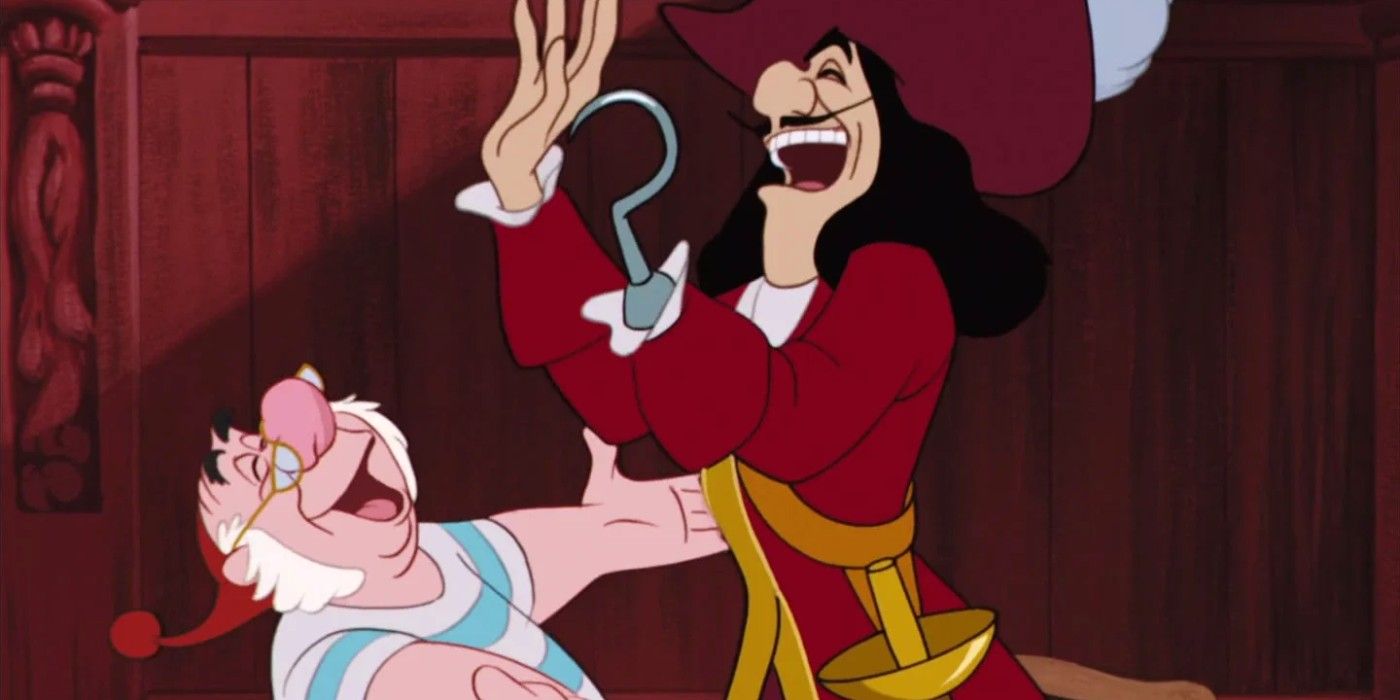
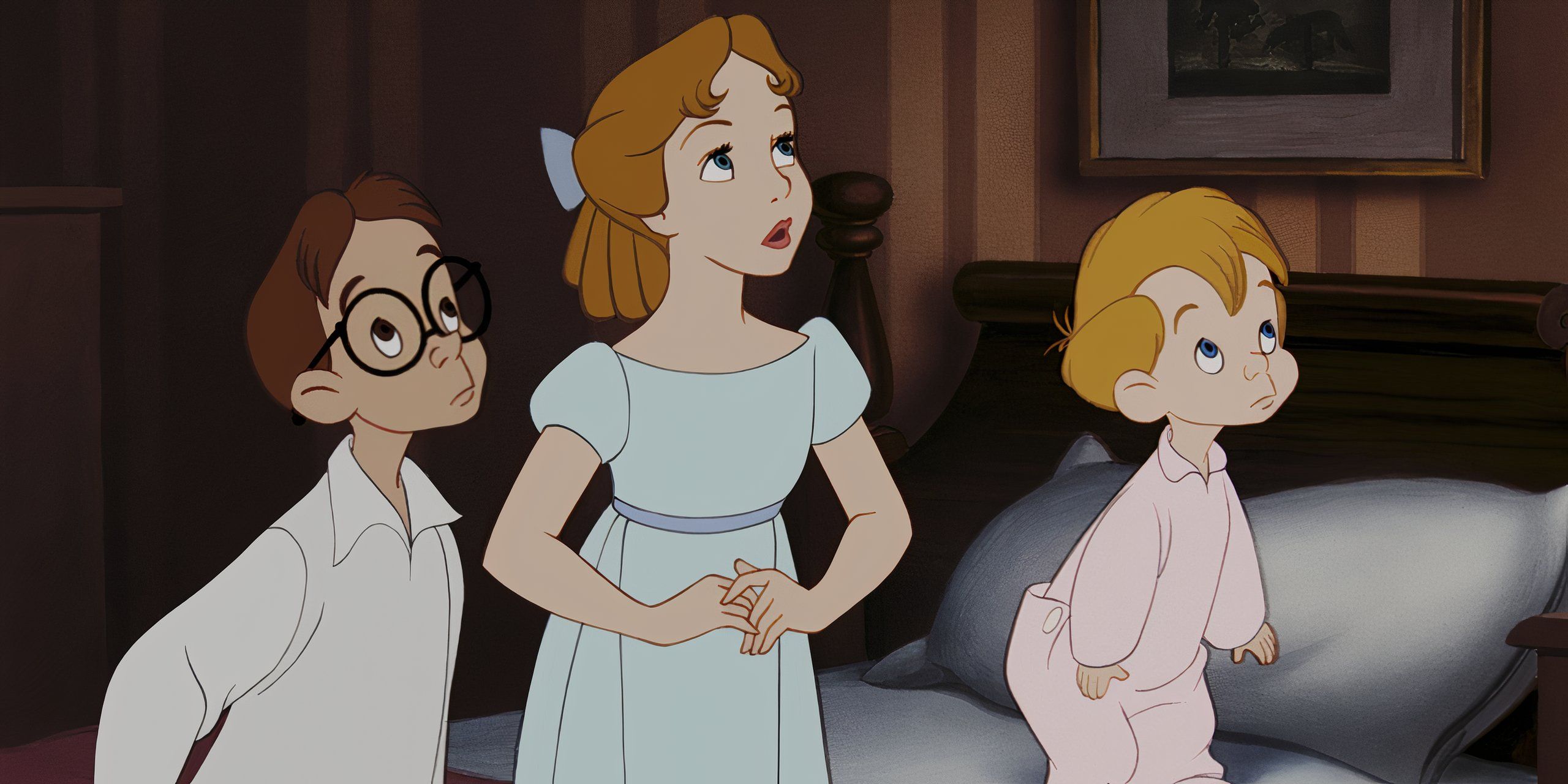
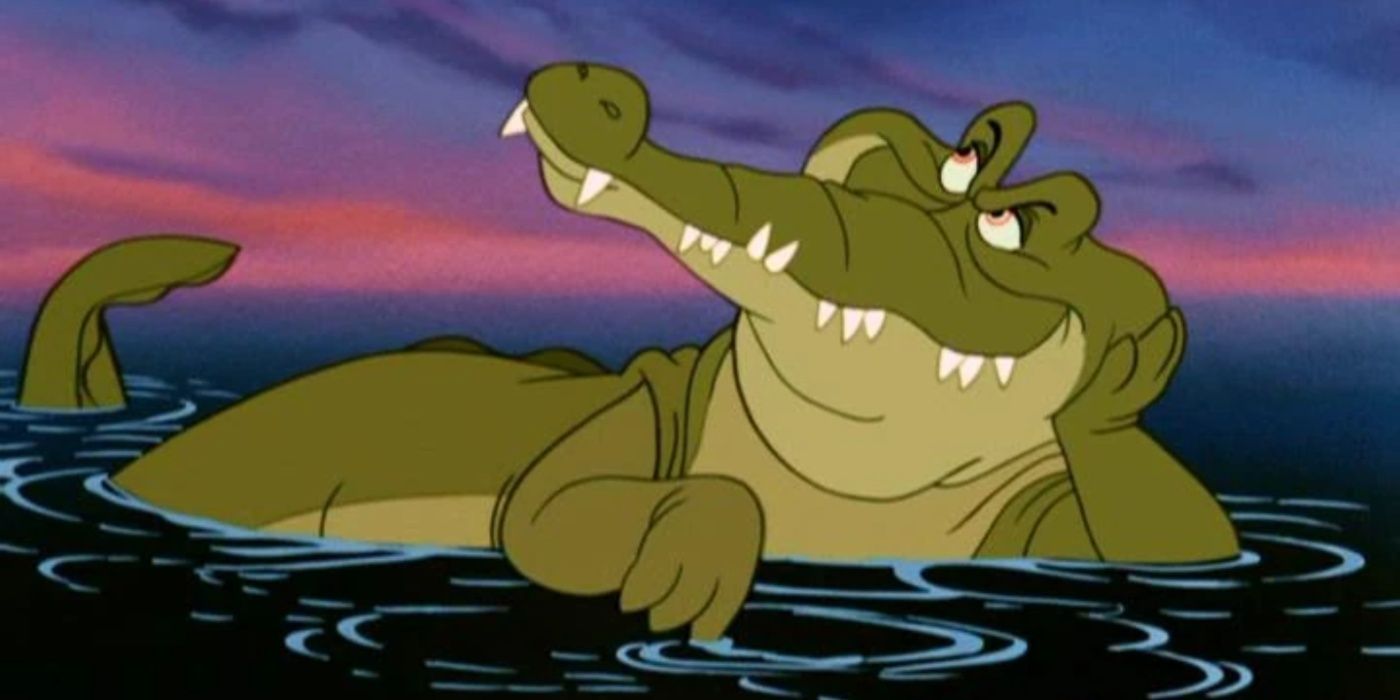
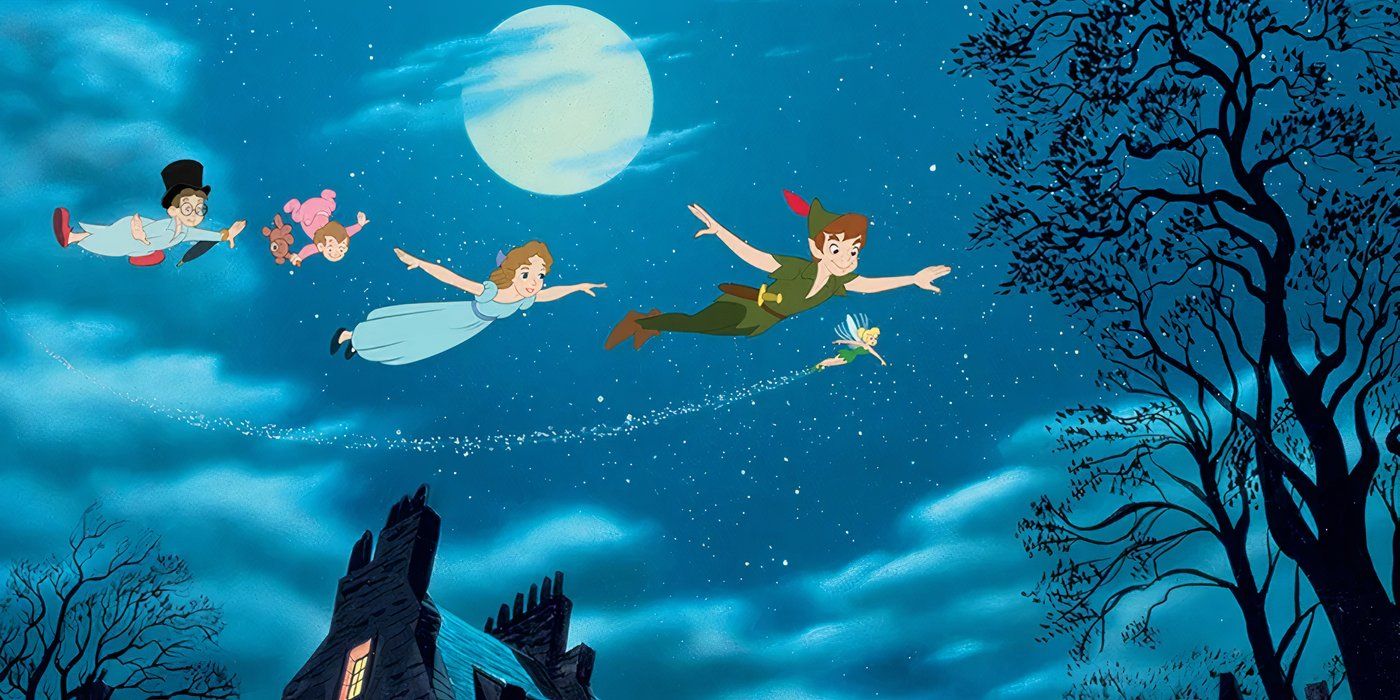
Peter Pan shows that Neverland is a realm where children escape having to mature. Simultaneously, Peter seems to detest maturity intensely, causing him to decline Wendy’s invitation to join her and the Lost Boys in the Darling household. Despite his dislike of growing up, he doesn’t want loneliness either, so he gathers around himself other children who never age, known as the Lost Boys. However, it leaves one pondering just how deep-seated Peter’s aversion to maturity goes or what his response might be if any of the Lost Boys were to mature into adults.
In a captivating fan theory, a user suggests that the character of Peter Pan, as written by J.M. Barrie, subtly indicates that Peter’s affection for childhood may drive him towards villainy. Moreover, this Redditor proposes that Captain Hook might secretly be the true hero in the story. The user highlights how the original narrative hinted at Peter Pan’s potential villainous side. In the book, children who were lost after rolling out of their prams as infants are collected by Pan. Unlike in common portrayals, the boys do age in Neverland. A chilling part of the story mentions that when they became too old and neared puberty, Pan would “thin” them out. Although this quote is open to interpretation, some readers see it as evidence that Peter Pan may have killed the Lost Boys instead of letting them grow up.
As a movie enthusiast, I’ve noticed some intriguing suggestions that might have subtly woven this intriguing plot point throughout the film. The theory revolves around the ambiguous aspects of the story, such as how Pan became immortal, his ties with the fairies, and the escalation of his feud with Hook. This Redditor proposes an interesting twist: perhaps the fairies in the movie, like Tinker Bell, are not what they seem – they might be pixies instead. In folklore, pixies are known for their mischievousness and malicious acts, such as kidnapping children. If the pixies bestowed Pan’s immortality upon him, perhaps they sought some playful trouble in return, and demanded that his price of immortality be the kidnapping and killing of children.
As a cinema enthusiast, I pondered over Pan’s peculiar actions in “Peter Pan.” He didn’t harbor a desire to harm the young Lost Boys initially; instead, he waited until they reached puberty, a point where he believed it wasn’t as morally wrong to take their lives. A Redditor also proposed an interesting theory about Captain Hook – that he was once one of the Lost Boys who grew up and managed to dodge Pan’s wrath.
As an adult, privy to Pan’s sinister plan, Hook aimed to thwart him from causing further harm to children. However, considering Pan’s immortality and Hook’s aging, it seemed unlikely that he could vanquish the boy during his lifetime. This intriguing tale leaves us wondering how Hook eventually ended up in Neverland – a question yet to be fully answered.
In the captivating world of Peter Pan, Captain James Hook is haunted by a persistent crocodile, said to have devoured his hand after Peter Pan severed it. A fascinating Reddit theory posits that Hook may have bartered his hand for eternal life, albeit with conditions: the crocodile’s insatiable hunger for his immortality and his vow of secrecy. This leads him to allow Peter Pan to claim credit for his missing appendage. As the story unfolds, Hook’s pursuit of Peter Pan transforms from a quest for revenge into a desperate attempt to return the Darling children to their own world, as he recognizes the impending consequence of their presence in Neverland – aging. Contrary to appearances, Captain Hook is not merely chasing Peter Pan for retribution; rather, he is tirelessly working towards ensuring the Darlings’ safe return home.
The key revelation about the movie’s mystery is found in its conclusion, where Wendy’s dad, George (Conried), identifies Hook’s ship up in the sky as they return home. This implies that George too visited Neverland, but managed to get back somehow. Maybe it was thanks to Hook’s assistance. But George’s departure seemed to anger Pan, causing him to abduct the Darling kids as a form of revenge for his escape and condemning them to the same destiny as their father.
Peter Pan Theory Begs the Question: Who Is the Real Villain?
Perhaps It’s Just a Matter of Interpretation
Although some facts contradict the Redditor’s hypothesis, like Hook’s actions of kidnapping children and threatening them with the plank, it’s hard to ignore how the ambiguities in Peter Pan’s story make this theory quite sensible. This theory might even cause viewers to wonder why they didn’t catch the supposed hints earlier. It’s worth noting that the film never explicitly portrays Pan as a hero, which seems unusual considering he’s often assumed as one. Upon reflection, he didn’t really perform any heroic deeds. Instead, it was him who endangered the Darling children by taking them away from their home and bringing them to Neverland, probably hoping they would abandon their family for good.
In Peter Pan, Hook isn’t portrayed as an outright villain. Though he has a grudge against Pan, his actions can be confusing or suggest a single-minded pursuit of Pan. Despite having the opportunity to harm Tinker Bell, the Lost Boys, or even Pan himself, Hook shows remarkable self-control. Instead of causing harm, he exploits Tinker Bell’s jealousy to learn Pan’s location and gives the Lost Boys an option to join his crew. Although Hook’s grudge against Pan seems excessive, it’s important to remember that Pan isn’t a child but an immortal, and Hook’s desire for vengeance for losing his hand is reasonable under those circumstances.
Furthermore, the vagueness surrounding the cause of the conflict between Peter Pan and Captain Hook, coupled with the adaptation that softens Hook’s character, suggests that the traditional hero-villain dynamic may not be as straightforward as it seems. However, it is understandable why audiences might still perceive Peter Pan as a hero and Captain Hook as a villain due to their contrasting appearances and personalities. Peter Pan appears as an innocent young boy with charm and allure, while Captain Hook is cowardly, unattractive, and closely tied to the notorious pirate image. Yet, appearances can sometimes be misleading. If this interpretation is accepted, it would represent a significant shift from Disney’s usual practice of depicting villains as unsightly characters.
The idea that Pan is actually the main antagonist in Peter Pan offers more than just an entertaining twist. It can significantly shift viewers’ perspective and interpretation of the traditional narrative. Instead of viewing it as a carefree story about a boy who refuses to grow up, it becomes a much darker tale where the pursuit of youth and immortality carries a chilling price. On the other hand, Captain Hook, initially portrayed as an adversary, emerges as a more complex character who might have gone too far in his quest to defeat Pan. Both characters are not simply good or evil, but rather, they are two individuals driven by motivations that could be either selfish or selfless, leading them to extreme actions.
In essence, this theory introduces a touch of ethical complexity and depth to the tale of Peter Pan. Although it strips some of the story’s purity, it also compels us to confront the unresolved questions that the movie embodies. Typically, people perceive it as a cheerful narrative about a boy who relished eternal childhood, continuously exploring the mystery and wonder of youth. However, it’s challenging to conceive of such a choice without consequences. Whether Pan indeed paid the price in accordance with the fan theory or merely lacked mature emotions like empathy and missed out on numerous experiences, there’s little that is admirable or heroic about the Boy Who Never Grew Up.
Read More
- Who Is Harley Wallace? The Heartbreaking Truth Behind Bring Her Back’s Dedication
- 50 Ankle Break & Score Sound ID Codes for Basketball Zero
- Basketball Zero Boombox & Music ID Codes – Roblox
- 50 Goal Sound ID Codes for Blue Lock Rivals
- The best Easter eggs in Jurassic World Rebirth, including callbacks to Jurassic Park
- Lost Sword Tier List & Reroll Guide [RELEASE]
- 11-year-old boy beats 7-year-old to win 2025 Rubik’s Cube World Championship
- Gaming’s Hilarious Roast of “Fake News” and Propaganda
- Summer Games Done Quick 2025: How To Watch SGDQ And Schedule
- Revisiting Peter Jackson’s Epic Monster Masterpiece: King Kong’s Lasting Impact on Cinema
2025-06-05 00:51